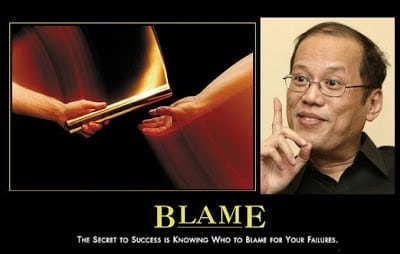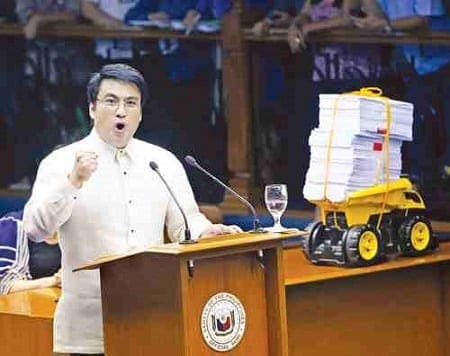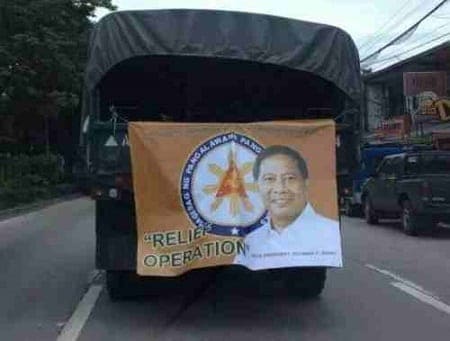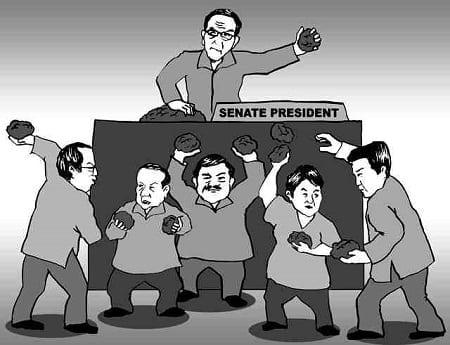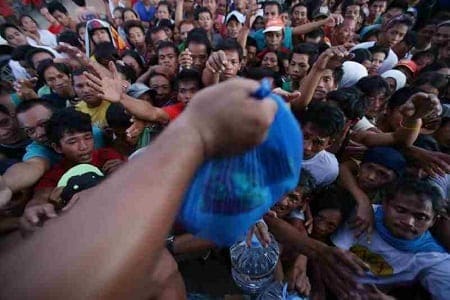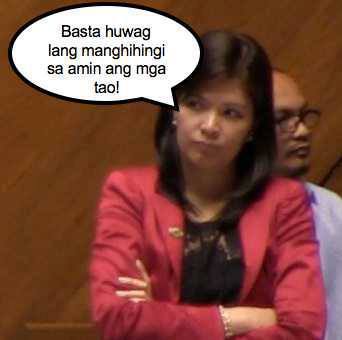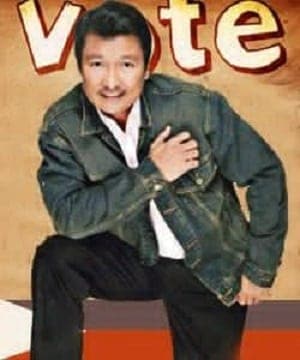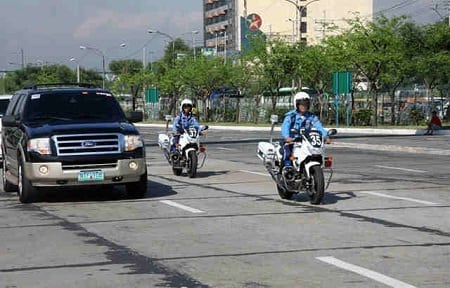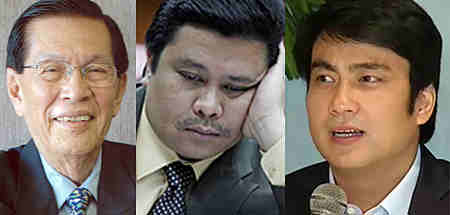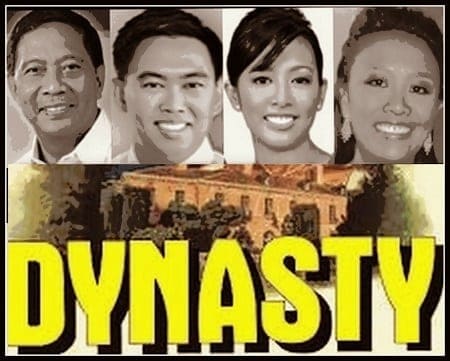10 Things Filipino Politicians Must Stop Doing
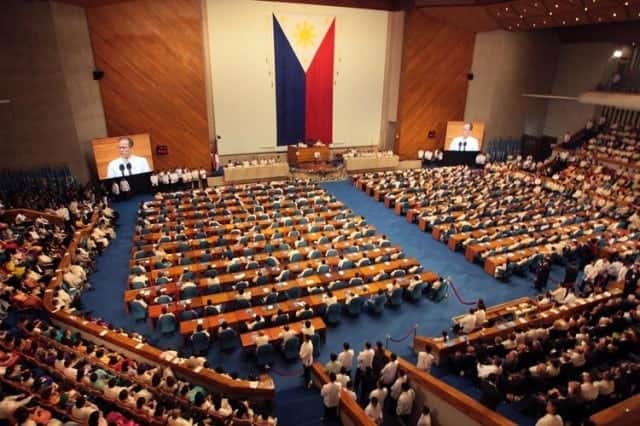
Our politicians are arguably one of the most colorful of their kind in the world. Colorful in the sense that you could throw just about every negative adjective at them, and it would still fit the description.
Also Read: 12 Annoying Attitudes of Filipinos We Need To Get Rid Of
Kidding aside, we have listed the usual things politicians do that we feel are bad for us and the country. Names do not need to named, since we already know who the guilty ones are anyway.
For the sake of public and national welfare, here are the things we think our politicians should stop doing right now:
1. Playing The “Blame Game.”
Whenever a controversy pops up or something goes wrong, our politicians just love to pin the blame on someone else rather than themselves. It’s as if they have never heard of the word “accountability” and “responsibility.” Maybe our good politicians have never heard of the quote “Whenever you point your finger at someone, three fingers are pointing at you.”
2. Grandstanding
As defined by Merriam-Webster, grandstanding means “to behave or speak in a way that is intended to impress people or get public approval.” And wow, do our politicians love to ham it up in front of the crowds, whether it’s in the hallowed halls of Congress, or in some distant plaza in the countryside. Fiery speeches and gesticulations make for a very lively political circus in this country.
3. Being “Epal.”
Defined as “extra” in English and closely related to grandstanding, being epal simply means attempting to get credit or attention when none is due. For politicians, that means trying to be recognized for projects or programs they didn’t have anything to do with at all in the first place.
Also Read: 27 Things You’ll Only See in the Philippines
We see it all the time—from billboards with their faces to disaster-relief goods with their names on it. Weirdly enough, we don’t see them owning up to their mistakes as much. Maybe it’s a case of “selective responsibility.”
4. Mudslinging
In political jargon, this means hurling as much dirt as one can dig up on an opponent. While this happens quite a lot during their time in office, our politicians like to turn it up a notch whenever election season is drawing near.
Instead of tackling important issues, “My rival had an affair!” or “He has an illegitimate child!” are the common battle-cries made by politicians during election time, all in a vain attempt to make themselves look good at their rivals’ expense.
5. Giving Dole-outs To The Poor
Now, don’t get us wrong: it’s perfectly all right to help our less-fortunate countrymen. However, politicians have created a culture of mendicancy by constantly handing dole-outs to the poor.
The necessary implications are that while it enhances his/her image, it also makes the politician an unwitting hostage to the whims of the mendicants, especially come election time. On the other hand, it promotes a sense of laziness among our countrymen, so why not create more livelihood projects instead? We believe in the saying that it’s better to teach a man to fish than to give him a fish.
6. Focusing More On Political Ambitions Than Public Service
Our politicians must have forgotten that public office is a service, not a vehicle to further one’s own goals. We know someone’s in it for the politics when election season is so far away yet he/she is already some form of “discreet” campaigning. Or how about when someone still insists on running (or clinging to his office) even when public opinion is clearly against him/her?
Clearly, someone should remind our politicians they are in power to render service, not to acquire more power.
7. Running For Office When Even He/She is Clearly Unqualified
How and who we vote into office reflects our political maturity as a people and is it ever lacking. Aside from the baffling phenomenon of why people who are clearly not qualified to hold office are still being elected is the even-weirder mystery of why we keep voting for such people.
Is it because they had a good song-and-dance jingle in front of the stage? Would we not be better represented and served by people who are actually educated and effective public servants rather than those who are actors or happen to have famous last names? Indeed it is a mystery.
8. Acting Like Aristocrats
Some of our more-haughty politicians need to brush up on the Constitution, namely that of Section 31, Article 6 which states that “No law granting a title of royalty or nobility shall be enacted.”
Again, politicians have to be reminded that public office is not a grant of nobility to be used and abused as they please. The use of “wang-wangs,” the affordance of VIP treatment, etc. gives ordinary people the impression that our politicians are a bunch of arrogant jerks. Whether that rings true for all politicians, we’ll let you be the judge.
9. Corruption
Do we really need to explain this one? If any politician (who is guilty by the way) is reading this, please stop raiding public coffers and stuffing public funds into your own pockets.
Also Read: 5 Dirty Facts You Didn’t Know About Pork Barrel
10. Nepotism
Political dynasties are arguably the biggest reason why the Philippines’ political system is so flawed. From the time of the datus to the Spanish encomienda system, ours has always been a system of patronage, with political power vested in the hands of a few families.
Even today, the bane of political dynasties is clearly felt across the country, with fathers, wives, siblings, and even in-laws all running for and holding public office. The end result is that the Filipino electorate is virtually powerless against these families.
Now, would the Philippines survive this oligarchic set-up? Probably, since we Filipinos are known to be durable and hardy people. However, it makes prosperity and reforms just that harder to achieve in the face of this “Last-Name Syndrome.”
FilipiKnow
FilipiKnow strives to ensure each article published on this website is as accurate and reliable as possible. We invite you, our reader, to take part in our mission to provide free, high-quality information for every Juan. If you think this article needs improvement, or if you have suggestions on how we can better achieve our goals, let us know by sending a message to admin at filipiknow dot net
Copyright Notice
All materials contained on this site are protected by the Republic of the Philippines copyright law and may not be reproduced, distributed, transmitted, displayed, published, or broadcast without the prior written permission of filipiknow.net or in the case of third party materials, the owner of that content. You may not alter or remove any trademark, copyright, or other notice from copies of the content. Be warned that we have already reported and helped terminate several websites and YouTube channels for blatantly stealing our content. If you wish to use filipiknow.net content for commercial purposes, such as for content syndication, etc., please contact us at legal(at)filipiknow(dot)net
